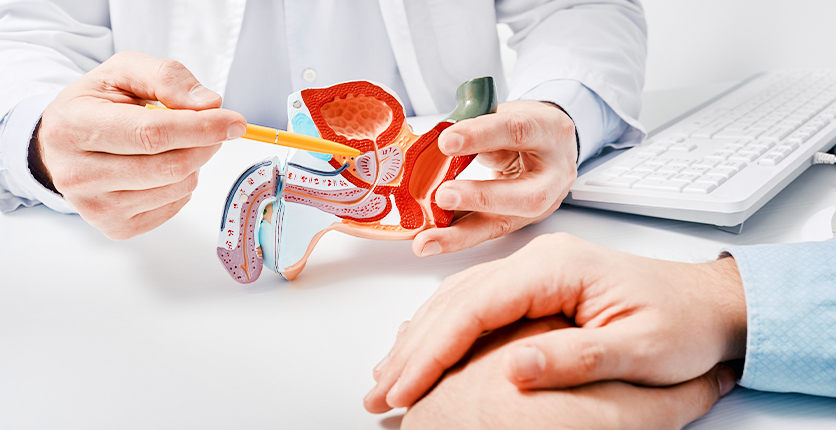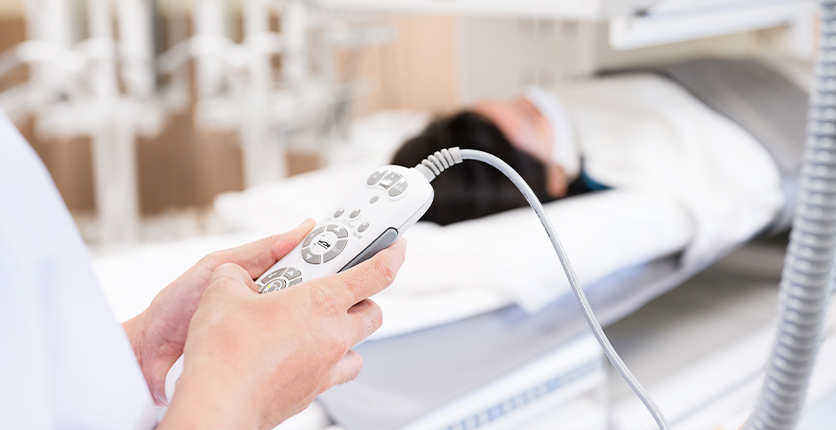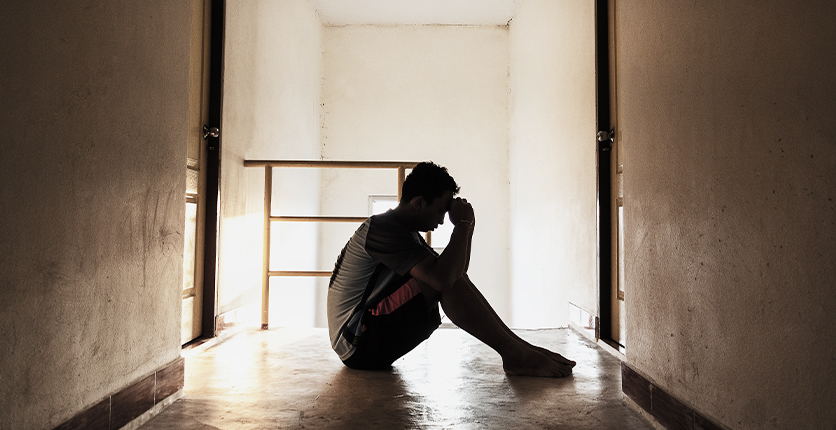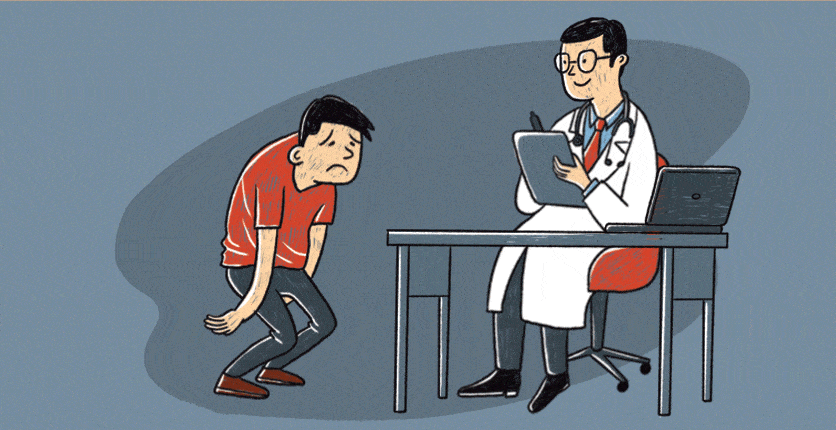November is when the world celebrates Movember – a movement founded in 2003 to shed light on, and raise funds for, the top health issues that affect men, namely, prostate cancer, testicular cancer, mental health and suicide.
According to Dr Lee Fang Jann, Consultant Urologist, URODOC, prostate cancer is the most common cancer in men in Singapore, with 6,912 cases diagnosed between 2017 and 2021 and the disease accounting for 16.8% of all new cancers diagnosed (Singapore Cancer Registry Report 2021).
“Testicular cancer accounts for approximately 1% of all new cancer cases in men. It’s the most common solid cancer in men aged 20 to 35 years. For unknown reasons, the incidence of this cancer – principally, testicular seminomas – increased during the last century,” Dr Lee adds.
Many men also experience mental health conditions such as depression, says Michelle Png, Assistant Senior Counsellor, Care Corner Singapore Ltd.
While it’s unclear exactly how many men suffer from depression, a 2018 national survey estimated that one in seven people in Singapore has experienced a mental health condition in their lifetime, Michelle points out.
In support of Movember, here’s what you should know about the most common men’s health issues, from risk factors to prevention.

Q: What are some causes of prostate and testicular cancers?
Dr Lee: These often result from a combination of genetic and lifestyle factors. While genetic predisposition can play a role, lifestyle factors such as diet, smoking, exposure to carcinogens, and overall health status are significant contributors. Regular screening and early detection can also influence outcomes.

Q: How can these cancers affect a man’s fertility and sexual performance?
Dr Lee: Some prostate cancer treatment options, such as surgery and radiation therapy, may impact erectile function and ejaculatory function. Hormone therapy, commonly used for prostate cancer, can also affect sexual desire and function.
In testicular cancer treatment, the surgical removal of one testicle typically does not affect fertility or hormone production. In advanced testicular cancer treatment using chemotherapy or radiation therapy, sperm production and fertility can be affected. Additionally, the diagnosis and treatment of testicular cancer can be emotionally challenging, which may indirectly affect sexual desire.

Q: What are some symptoms to look out for in these cancers?
Dr Lee: Prostate cancer symptoms may include:
- Urinary changes, such as frequent urination, difficulty starting or stopping urination, weak urine flow, or the need to urinate at night
- Blood in the urine or semen
- Pain or discomfort in the pelvis or lower back
These symptoms can be similar to benign conditions like benign prostatic hyperplasia (BPH) or prostatitis. Early-stage prostate cancer often doesn’t cause noticeable symptoms, which is why regular screenings are vital.
Symptoms of testicular cancer may include:
- A painless lump or swelling in the testicle
- A feeling of heaviness or aching in the lower abdomen or scrotum
- Enlargement or change in the consistency of a testicle
- Discomfort or pain in the testicle or scrotum
- Back pain, shortness of breath, or chest pain (in cases of advanced cancer)
These symptoms are not specific to testicular cancer and can be caused by various conditions. Any concerning symptoms should prompt a visit to a healthcare provider for evaluation.

Q: How are these cancers treated?
Dr Lee: The treatment of prostate cancer depends on the stage and aggressiveness of the cancer. Treatment options include surgery, radiation therapy, chemotherapy, hormone therapy, and targeted therapy. The survival rate is generally high, especially when diagnosed and treated early. Many men can live with prostate cancer for an extended period, and some cases are slow-growing, allowing for active surveillance rather than immediate treatment.
Testicular cancer is highly treatable, especially when detected at an early stage. Treatment typically involves surgical removal of the affected testicle, with the possibility of additional treatments like chemotherapy or radiation therapy depending on the stage and type of cancer. The survival rate is generally high, even for more advanced cases, and early diagnosis significantly improves outcomes.
Look out for these other health issues that concern men of various ages, from your 20s to your 60s.

Q: How can men minimise their risk of developing prostate and testicular cancers?
Dr Lee: Here are some tips:
- Maintain a healthy lifestyle: Follow a balanced diet, exercise regularly, and avoid smoking and excessive alcohol consumption.
- Get regular check-ups: Regular medical check-ups and screening tests, such as PSA tests for prostate cancer, can aid in early detection and diagnosis.
- Know your family history: If you have a family history of these cancers, you may be at a higher risk and should discuss your risk with your doctor.
- Watch out for occupational and environmental exposures: Be cautious if you work in industries with potential carcinogenic exposures and take appropriate safety precautions.
- Understand your risk factors: Some conditions and factors, such as obesity, may increase the risk of these cancers. Being aware of your risk can help you make informed decisions about lifestyle and healthcare.
SAFRA members receive special discounts on consultations at URODOC, among a range of other healthcare providers. For the full list of healthcare benefits, go to safra.sg/promotions/healthcare-products-and-services.

Q: What are common triggers of depression in men?
Michelle: Men may be more susceptible to societal pressures – they may feel that they have to live up to this idealised notion of masculinity, of having to be the financial provider, physically strong, and unbreakable in the face of challenges. As children, their parents may also have told them that “big boys don’t cry” or “suck it up”.
Such conditioning may result in a toxic cycle of self-blame whenever a man feels overwhelmed and can’t manage difficult emotions. Compared to women, men may be more hesitant to ask for help, for fear of being judged. They may also not have the vocabulary to express their vulnerability. Repressing such emotions may lead to depression taking root. Because of the stigma and shame surrounding depression, many men therefore suffer in silence, or they may turn to substance abuse or alcohol to deal with their emotions. However, these only worsen depression symptoms.
Men who engage in work that exposes them to trauma, such as soldiers in combat, firefighters or policemen, are also vulnerable to Post Traumatic Stress Disorders (PTSD) – depression is a common problem that can develop after trauma.
We also see men in their late 40s to late 50s who suffer from mood swings because of andropause (a combination of high-stress cortisol levels and low testosterone levels). Irritable Male Syndrome (IMS) is the term used to describe mood swings in men. Some men respond by acting out while others suppress their feelings and become depressed.

Q: What are the symptoms of depression?
Michelle: Depression feels like a persistent feeling of drudgery and low mood. People suffering from depression often complain that their reactions are slow and lethargic. There is an overarching sense of hopelessness, emptiness and sadness. They no longer enjoy their hobbies or take pleasure in food or sex. They may experience changes in weight and appetite, sleep disturbances and/or constant fatigue.
Depression is somewhat oriented towards the past. Some people fixate on past regrets and “what ifs”, wallowing in self-pity and self-loathing.
Depressive disorders include major depressive disorder (MDD), persistent depressive disorder (dysthymia), bipolar disorder (when depression alternates with manic or hypomanic episodes), and seasonal affective disorder (SAD).

Q: How can men minimise their risk of depression?
Michelle: As physical and mental health are connected, you should take care of both. This means maintaining a healthy lifestyle – sleeping seven to nine hours a night, exercising, and eating nutritious whole foods. Quit unhealthy habits like smoking and binge drinking.
It’s also important to minimise stressors. For example, if certain aspects of your job or relationship trigger distress, make changes to prioritise your wellbeing.
Invest in friendships, and “pay it forward” by intentionally participating in activities that improve the lives of others, such as volunteering.
To be more in tune with your moods and feelings, consider practising mindfulness and relaxation techniques and keeping a gratitude journal.

Q: How does one deal with suicidal thoughts?
Michelle: In Singapore, we have the 24-hour SOS helpline manned by trained mental health professionals. If suicidal thoughts invade your mind and you find yourself actively thinking about self-harm, dial a helpline and allow someone to attend to you.
You should see a psychiatrist in our restructured hospitals or private clinics to get an assessment and evaluate if medication is needed to help manage the acute condition.
Professional counselling support is also readily available. This link provides a one-stop consolidation of government-funded initiatives and services: www.aic.sg/resources
Care Corner Singapore provides the following resources:
- For males aged 13-25: carey.carecorner.org.sg – Free online mental health buddy, which allows you to schedule a mental health check-in with trained counsellors.
- For those above 25 years, reach out to Care Corner Counselling Centre at 63531180. Our team of counsellors help clients towards healing, recovery, better mental health and functioning in their lives.
Read more about the most common mental health issues that affect men and get tips for protecting your emotional wellbeing.
Save more with SAFRA! Enjoy special deals and discounts on dining, shopping, entertainment, travel, fitness and more from over 1,500 merchant outlets islandwide. Sign up or renew your SAFRA membership for three years at the price of 1 year ($43.20 inclusive of GST)! Plus, get your spouse and children on board to enjoy the same privileges too – 1st dependent pays $5.40/year, and it’s free for the 2nd dependent onwards. Visit safra.sg/savemore for more details.
Want more articles like this, and other lifestyle content right in your inbox? Download the new SAFRA mobile app and opt in for the eNSman Newsletter – you don’t need to be a SAFRA member to subscribe – and never miss another story!







